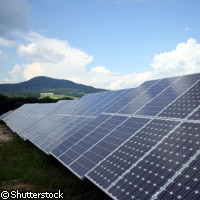International Energy Agency reviews European energy policy
The EU's energy policy has for the first time been reviewed and critiqued by the International Energy Agency (IEA). Their comprehensive analysis lauds the Commission's efforts to foster an integrated European research community, and considers its proposed energy policies to be sound. The review also urges the Commission to allocate more funding to non-nuclear energy research in a recasting of the Seventh Framework Programme (FP7). The main findings of the IEA review were presented this week to the President of the Commission, José Manuel Barroso, and Energy Commissioner Andris Piebalgs. The IEA's Executive Director, Nobuo Tanaka, presented a report that praises the EU's climate change approach to energy policy and welcomes the Commission's efforts to liberalise electricity and gas markets. At the same time, the report asks that the Commission address a marked imbalance in the allocation of funds to energy research projects. Funding for non-nuclear energy research in general, and demand-side research in particular, should be significantly increased, the IEA recommends. The report highlights a disparity between funding for energy research (€2.35 billion for non-nuclear and €2.751 billion for nuclear research and development) and areas such as information and communication technology (€9.05 billion) and health (€6.1 billion) research. Because FP7 funding is approved through a co-decision procedure, the research and development sectors it supports are for the most part steered by political priorities. As the reduction of greenhouse gases and the development of sustainable, renewable and carbon-neutral energy sources is high on the list of Europe's political priorities, a recasting of FP7 before 2013 is necessary 'to ensure a sufficient volume of energy research and development', according to the review. The report states, 'In the longer term, new generations of technologies have to be developed if Europe is to meet the greater ambition of reducing greenhouse gas emissions by 60% to 80% by 2050. Given the time scales for energy research and development, this means that the research effort must commence now, a situation which poses a challenge for the Commission.' Most of the research and development funds are spent on supply-side research, but the IEA advises that more efforts should be directed at demand-side research. This might include, for example, developing energy-efficient technologies and optimising the application of proven concepts such as 'minimum climate-impact' buildings. The EU's SET-Plan, laid out in March 2007, was praised and the Commission was encouraged to implement it with all speed, in particular by 'following up the proposals on a better governance structure to build synergies across the EU and national research programmes and between public and private energy research and development', and by 'financing, together with the Member States and industry, its proposed industrial initiatives and research efforts as part of the SET-Plan to increase the further development uptake of all low-CO2 technologies in the EU'. The IEA review also concluded that the European Commission should continue its efforts to bring more private and national funding to EU energy research projects, and that it should strive to balance the nuclear and non-nuclear sides of the programme. Energy proposals are currently under discussion between the European Commission, the European Council and the European Parliament. The Commission has said that it 'will take into account the findings of the IEA review in its future work to further improve its energy policy'.



